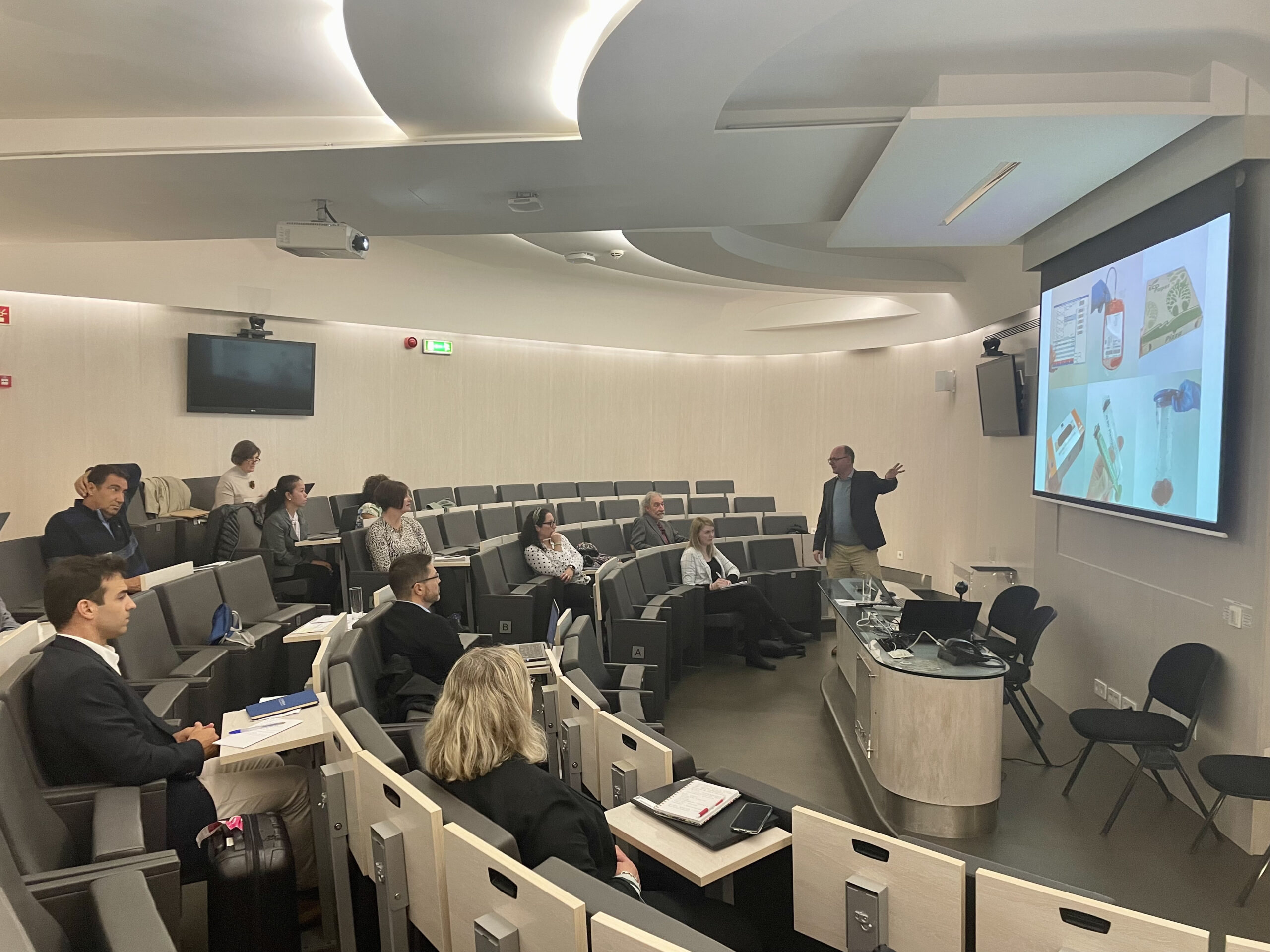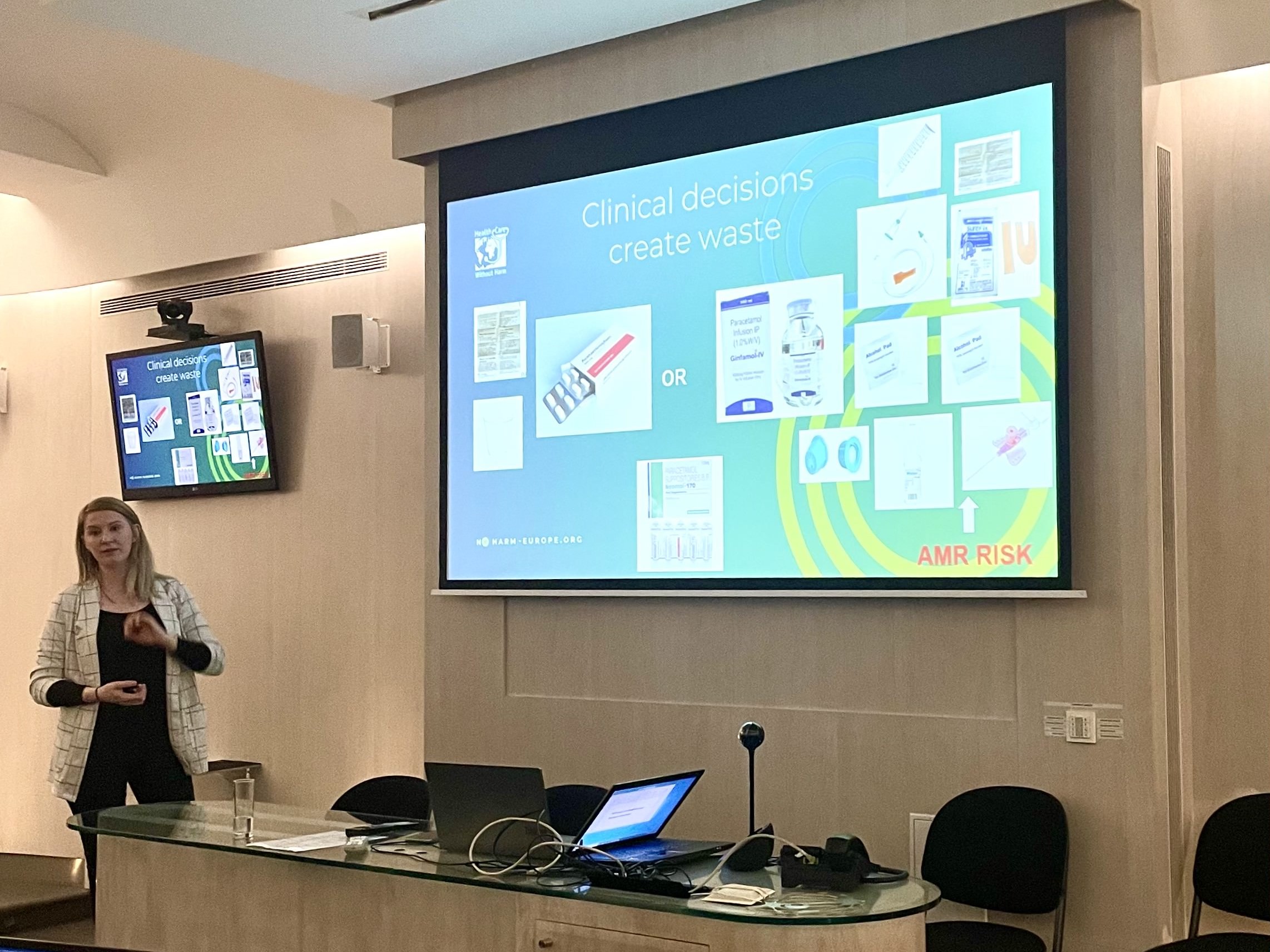Welcome to the second AMR EDUCare newsletter
December, 2023
Dear Reader,
We are happy to present the second newsletter of the AMR EDUCare project (2023-2025), committed to the fight against antimicrobial resistance (AMR) by developing educational materials in this field for healthcare professionals.
In this newsletter, discover how Lecturio, a prominent online learning platform is collaborating with the AMR EDUCare consortium in developing courses on AMR, take a look at our Antimicrobial Waste Management workshop in Lisbon, and learn about the importance of behavioural change in combating AMR.
AMR EDUCare courses to be hosted on the Lecturio platform
Lecturio is embarking on a joint journey with the AMR EDUCare consortium partners to develop new courses specifically designed to address the pressing issue of antimicrobial resistance (AMR). In collaboration with the esteemed experts at AMR EDUCare, these courses will be meticulously crafted and hosted on the Lecturio platform, ensuring a learning journey that maximizes the learning outcomes to in turn help combat AMR.
Lecturio, renowned for its unique world-class video, concept page, and case question library, will serve as the ideal canvas for these new courses. The content, tailored to the intricacies of AMR, will be presented through strategically segmented video lectures, incorporating cognitive science principles to captivate learner attention from the outset.
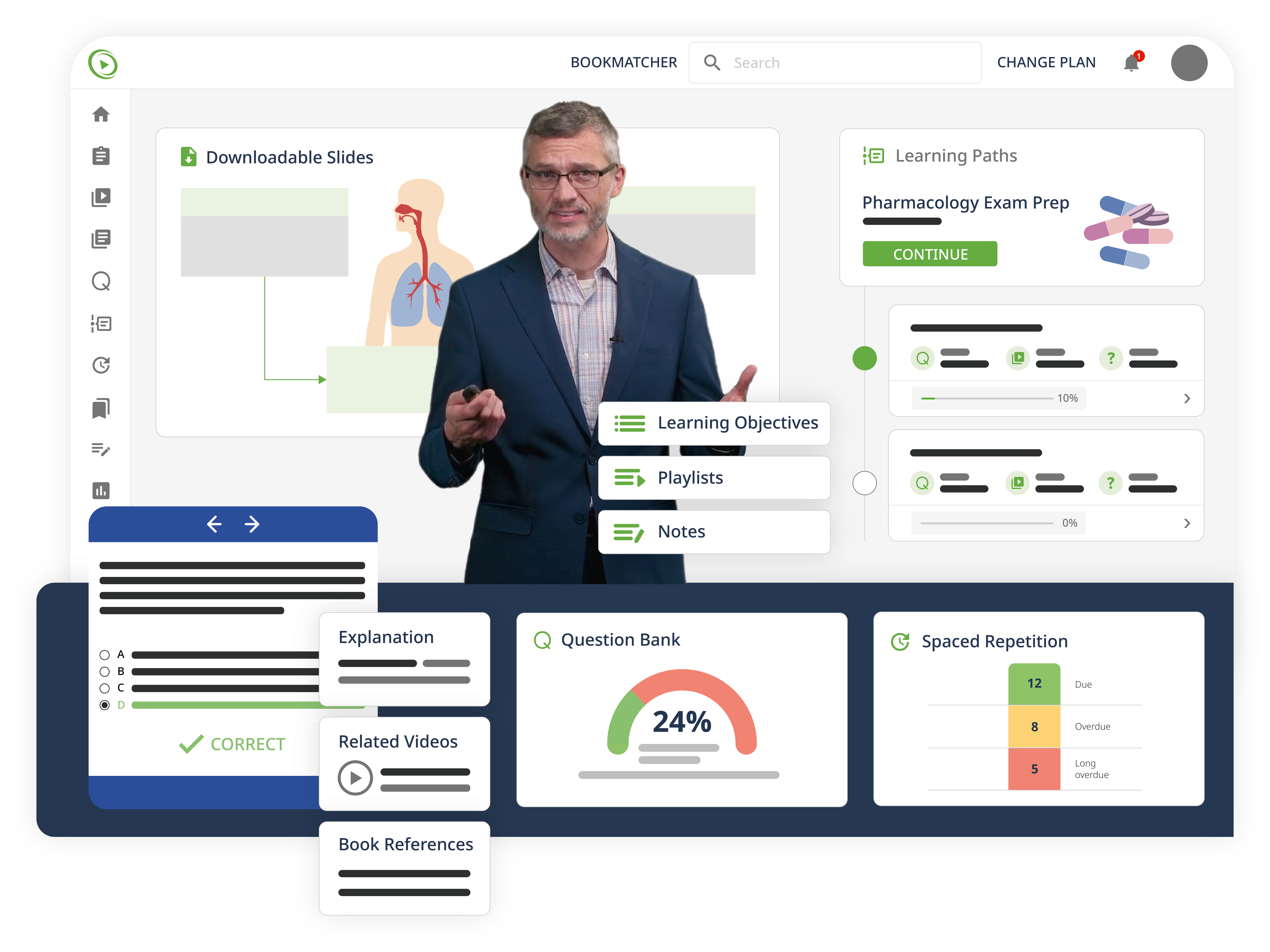
Lecturio’s Concept Pages will provide concise summaries, catering to diverse learning preferences within the AMR EDUCare audience. The platform’s Learning Paths will guide participants through a seamless course flow, ensuring that learners can easily navigate and comprehend the intricacies of AMR-related concepts.
Lecturio’s commitment to cutting-edge learning science, blending expertise with cognitive science, neuroscience, and artificial intelligence, will enhance the efficacy of these courses. Recall quizzes accompanying each video will actively engage learners, while the spaced repetition algorithm* facilitates long-term memory retention.
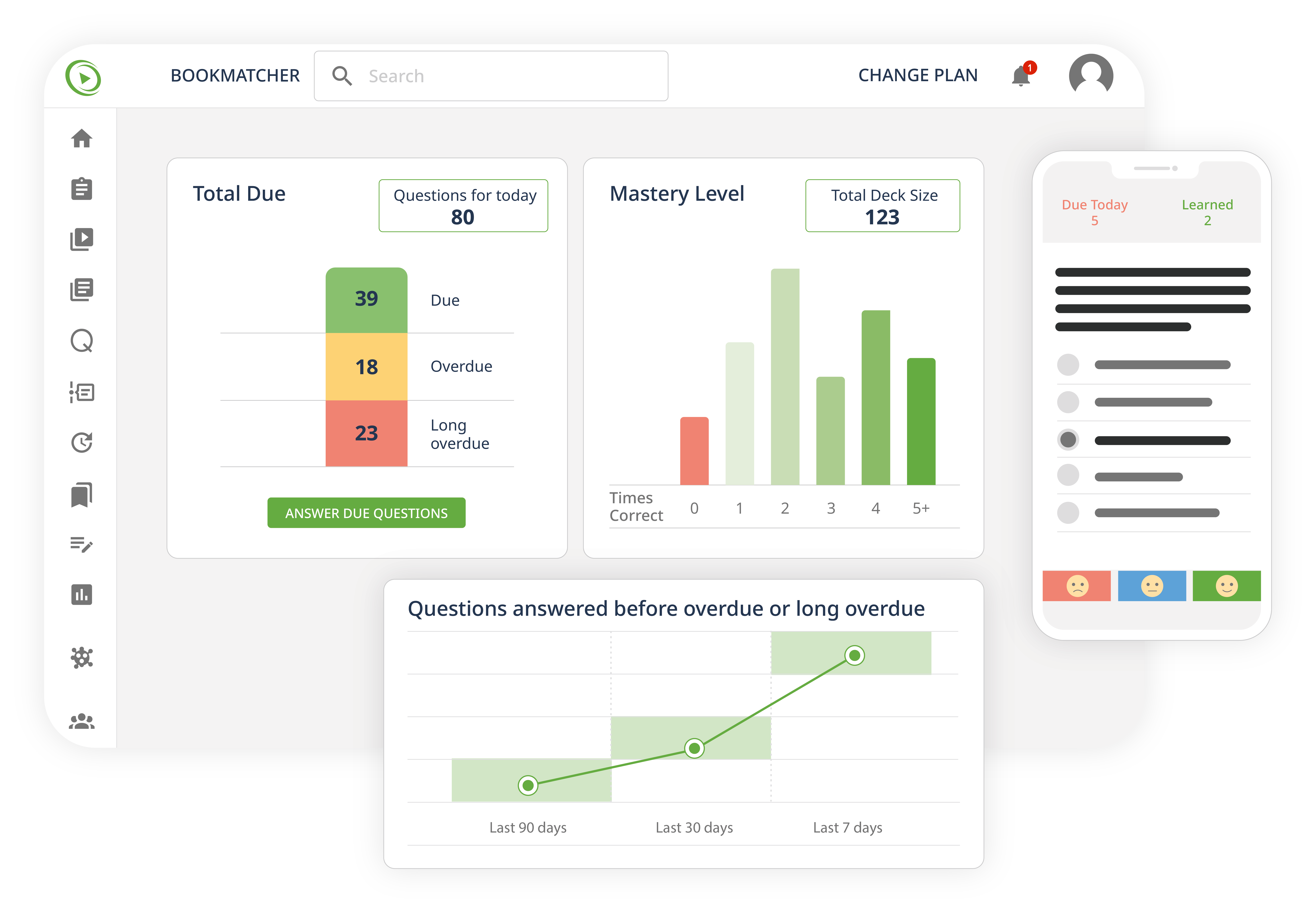
The case-based Question Bank, supported by Adaptive Review, will enable immediate feedback and reinforcement of correct and incorrect answers, providing a deeper understanding of AMR challenges. Interactive games and learning activities will further enrich the learning experience, applying active learning techniques for lasting comprehension.
The introduction of Lecturio’s AI Tutor will bring real-time assistance to learners, guiding them through critical reasoning in response to case-based questions. Available 24/7, the AI Tutor will offer personalized support, enhancing problem-solving skills and contextual understanding.
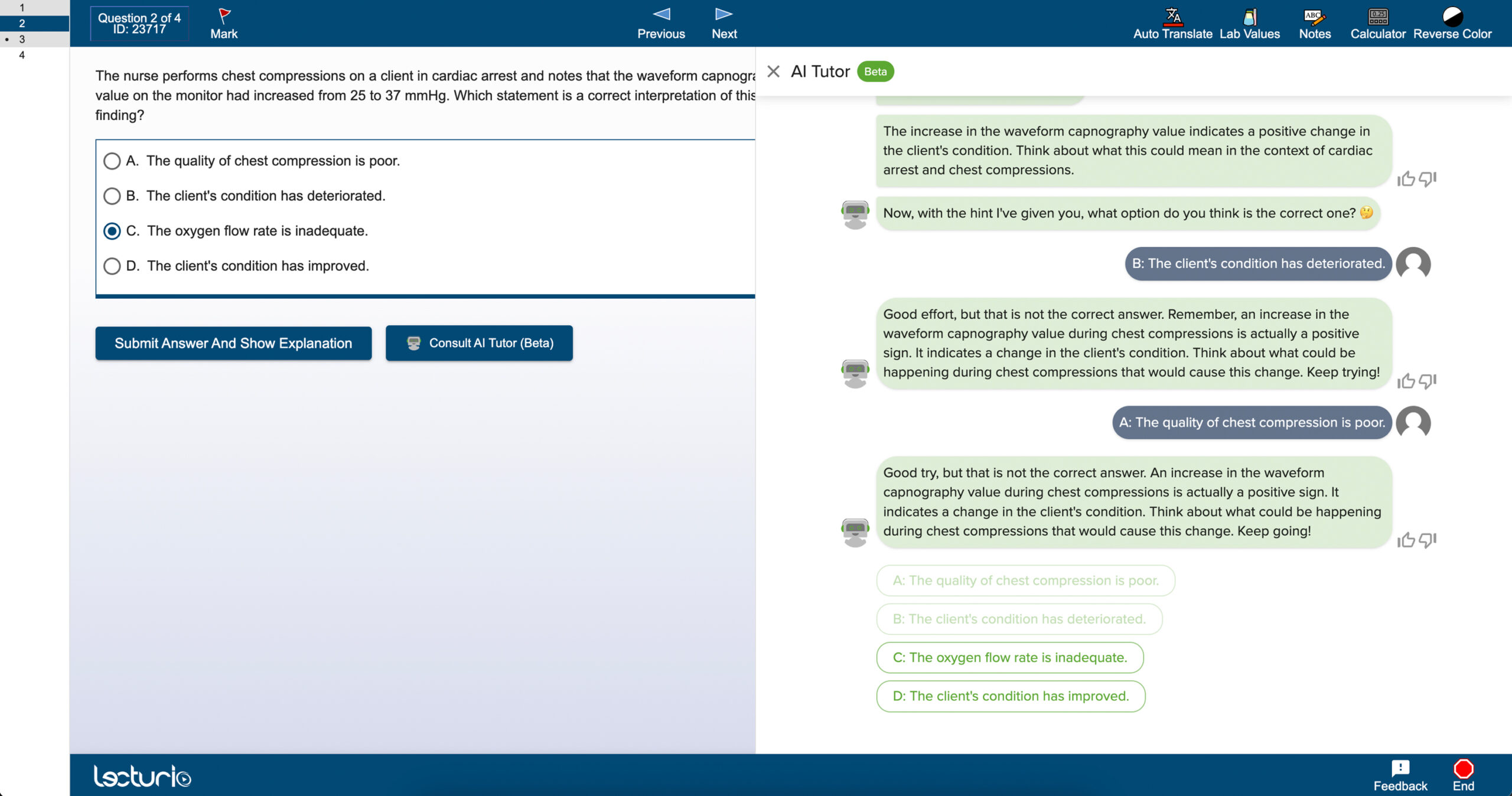
The Lecturio platform’s flexibility, allowing access at any time, accommodates the varied schedules and commitments of the AMR EDUCare clinical target audience. Additionally, the platform’s data-driven approach, capturing metrics such as confidence levels, errors, and adherence to spaced retrieval, will provide educators and administrators with invaluable insights. This data-driven strategy enables timely interventions, personalized support, and continuous improvement of the courses, ultimately leading to enhanced learning outcomes in the fight against AMR.
Lecturio is proud to collaborate with AMR EDUCare in developing these crucial courses to address antimicrobial resistance. The Lecturio platform, with its diverse features and commitment to cutting-edge learning science, will ensure an enriching and effective learning journey for participants, empowering them to make a significant impact in the battle against AMR.
*Spaced retrieval is a proven memory method that uses your memory’s natural abilities to help learners to remember things by recalling them at increasing time intervals.
Read more about Lecturio: https://www.lecturio.com/inst/medical/features/
Marketing video: https://www.youtube.com/watch?v=DpLA4aatzmU&list=PLVnjTkEwv-uNlSDP3SHmIaA5mcLHz4Nzs
Article courtesy of Sanja Sontor (Lecturio)
Antimicrobial Waste Management: Needs Identification Workshop
We recently hosted the Antimicrobial Waste Management: Needs identification workshop in Lisbon and welcomed professionals working across European healthcare to discuss critical components of the sector’s waste management processes. Among the participants were Dr Ute Pieper, WHO Euro consultant and Dr Anne Woolridge, sustainable waste specialist.
Through key sessions and presentations, the workshop aimed to present current best practices and understand the essential components of waste management currently not included within healthcare worker education.
During the workshop, we pinpointed crucial areas for improvement. This included simplifying the language used to make waste management more understandable and the necessity to enhance healthcare professionals’ comprehension of the connection between AMR development and waste management. We also discussed why knowledge of waste management is essential for all healthcare professionals.
The workshop outputs will support the creation of a module on waste management and its role in antimicrobial resistance for the AMR EDUCare project.
Behavioural change: Using a social science approach in the fight against AMR
Addressing the problem of antimicrobial resistance requires a comprehensive approach beyond medical interventions. Behavioural change is a critical component: by understanding the drivers of inappropriate antibiotic use and implementing targeted interventions, medical efforts can be effectively complemented, and responsible antibiotic use can be advocated for.
Health ministers and representatives from the 53 Member States of WHO/Europe have recently approved a new roadmap for tackling antimicrobial resistance in the WHO European Region. This plan recognizes behavioural and cultural insights as a powerful tool that can significantly contribute to addressing AMR.
Various models are available for examining the behaviours of healthcare professionals, and one of these is the COM-B model (Capability, Opportunity, and Motivation for Behaviour Change; Michie, van Stralen, & West, 2011) which is widely used to identify what needs to change for a behaviour change intervention to be effective.
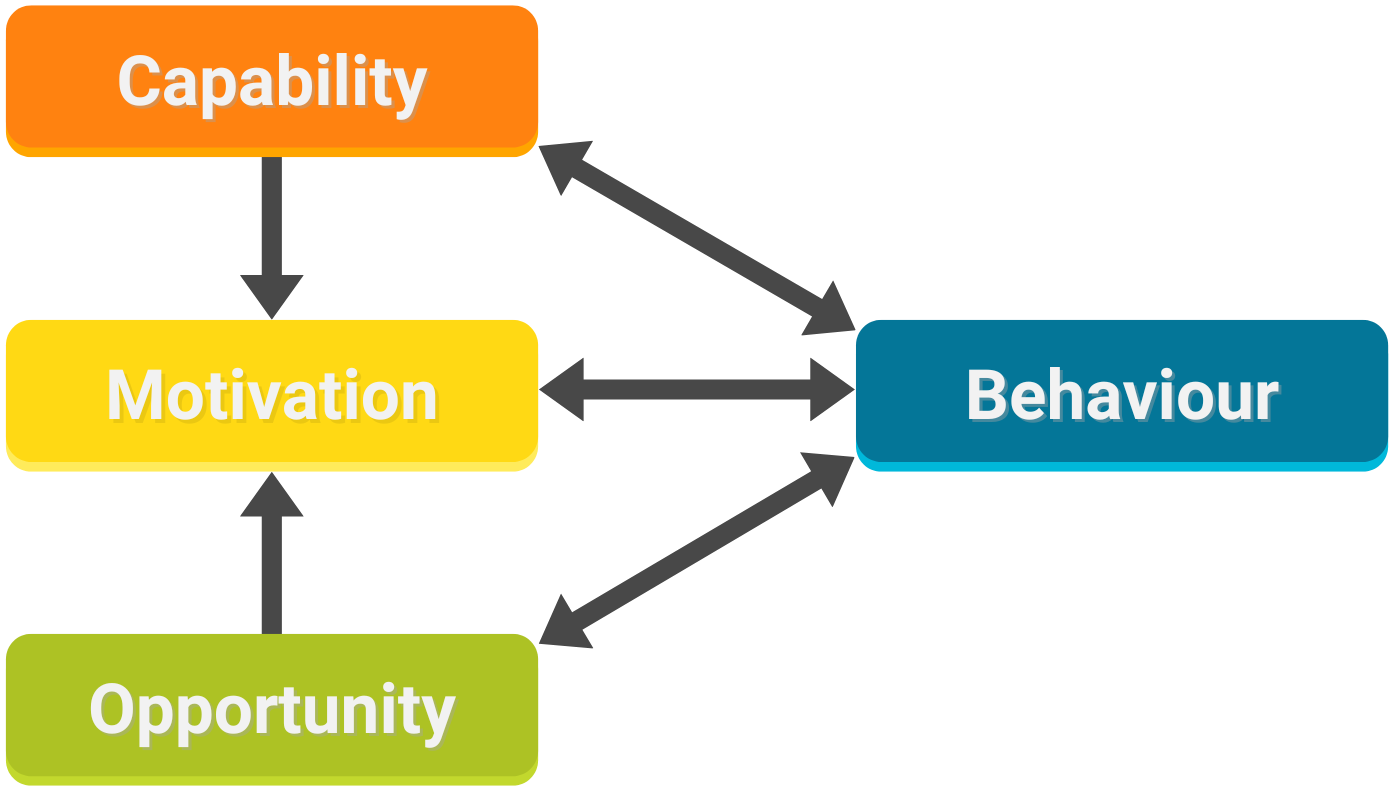
| Drivers of behaviour * | Examples for healthcare professonals |
|---|---|
| Capability is an attribute of a person that together with opportunity makes a behaviour possible or facilitates it. It refers, for example, to perceived skills or knowledge (psychological capability) that are essential to perform the behaviour. | - competence of healthcare professionals in adeptly and responsibly selecting and dosing antibiotics |
| Opportunity is an attribute of an environmental system that together with capability makes a behaviour possible or facilitates it. It refers, for example, to perceived cost and time constraints (physical opportunity) alongside social opportunity that can make it easier or harder to perform the behaviour. | - social opportunity: interpersonal and group dynamics, organizational structures - physical opportunity: tangible and environmental factors that impact prescribing behaviours, such as easy access to necessary equipment and the availability of protocols and guidelines |
| Motivation is an aggregate of mental processes that energise and direct behaviour. | - the confidence of healthcare professionals in their capabilities - emotional responses such as fear, habits, and reactions to situational pressures - their awareness of the consequences of their decisions |

Identified behaviours during the process of antibiotic use that may be points of intervention:
- Selecting the correct antibiotics
- Antibiotic prescribing
- Calculating antibiotic dosage
- Overuse of antibiotics
- Taking antibiotics
- Informing patients of antibiotic dosage/how to take and return unused antibiotics
- Using prescription sheets
- Using antibiotic guidelines
Changing human behaviour is crucial to fight against AMR, but change is always a challenge. All of us find it difficult to break a current habit and simultaneously cultivate a new set of actions. The AMR EDUCare project’s goal is to help healthcare professionals in this challenging process by providing behaviour change tools to be incorporated into all training modules.
* Robert West, Susan Michie. (2020). A brief introduction to the COM-B Model of behaviour and the PRIME Theory of motivation. Qeios. doi:10.32388/WW04E6.2.
Sources:
https://www.who.int/europe/publications/i/item/EUR-RC73-7
https://www.who.int/europe/news/item/29-11-2023-behavioural-and-cultural-insights–a-game-changer-in-tackling-antimicrobial-resistance
https://www.ncbi.nlm.nih.gov/pmc/articles/PMC3096582/
https://www.qeios.com/read/WW04E6.2
Thank you for staying with us,
Best wishes from the communications team:

Szilvia Farkas

Albert Aszalos

Szilvia Farkas

Albert Aszalos
Subscribe to our newsletter to stay informed about course development and availability

Funded by the European Union. Views and opinions expressed are however those of the author(s) only and do not necessarily reflect those of the European Union or the Health and Digital Executive Agency (HaDEA). Neither the European Union nor the granting authority can be held responsible for them.

